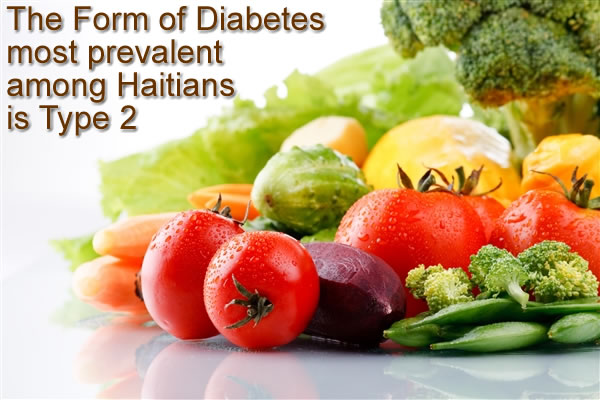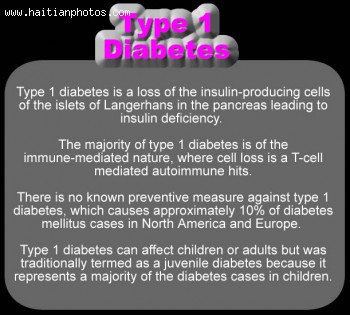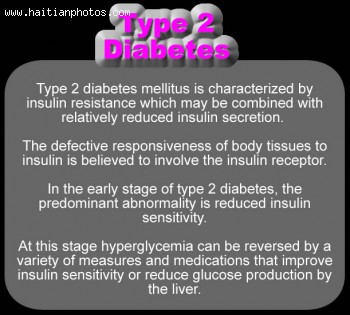ADVERTISEMENT
Diabetes
Ordre National Honor and Merit at Grade of Grand Cross Silver plate to Dr. René Charles
Here is a picture of Dr. René Charles and Haitian President Michel martelly. On this very same day people around the world are assessing the effect of Diabetes and Cardiovascular Diseases, our president took the occasion to honor some of those who have been working hard in the area of bringing treatment. In that, Ordre National Honor and Merit at Grade of Grand Cross Silver plate was given to Dr. René Charles last Friday ath the National Palace for his work in Haiti
President Martelly honored Dr. Rene Charles with the Order National Honor and Merit at Grade of Grand Cross Silver at the National Palace for his work in the field of diabetic research and treatment. In attendance were Public Health Minister Dr. Guillaume and Dr. Charles's family.
Minister Guillaume noted 300,000 Haitians are afflicted with diabetes and spotlighted the work of Dr. Charles's Haitian Foundation for Diabetes and Cardiovascular Diseases.
The Form of Diabetes most prevalent among Haitians is Type 2
Studies has found that Type 2 is The Form of Diabetes most prevalent among Haitians. Furthermore, Haitians with diabetes exhibit worse glycemic control, appear to be less likely to have control of their blood pressure and LDL levels than other ethnic groups.
The Form Of Diabetes Most Prevalent Among Haitians Is Type 2
"Diabetes Mellitus" or simply known as "Diabetes" is a disease due to inadequate insulin hormone secretion by the pancreas, leading to excess sugar level (blood sugar) in the blood stream that damages various organs in several ways. There are three main types of diabetes: Type 1, Type 2 and Gestational Diabetes (a form of diabetes that can occur during pregnancy). Type 1 diabetes is mostly insulin dependent and more prevalent in young ages. It is a situation when the pancreas produces very little or no amount of insulin at all. Type 2 diabetes is the most common form of this disease, found mostly in people aged over 40. However, it is never uncommon among young adults. It is generally non-insulin dependent, normally found in people who are overweight, or with ages, faulty food habits, tension, lifestyle and among people with a family background of diabetes. A recent study has shown that a major part of the Haitian-American community has fallen prey of Type 2 Diabetes. Diabetes is a serious but highly manageable disease through regulated lifestyle, balanced diabetic diet and medicine under the supervision of a Registered Dietitian (RD). A recent study has shown that 8.2% of Haitians have higher mean of HbA1c with poor blood pressure control, compared to white patients (below 7.7%) and black patients (7.7%). "HbA1c" is a measure of "glycated haemoglobin" that gives an an overall picture of what our average blood sugar levels had been, over a period of weeks/months. However, the BMI (Body Mass Index) of average Haitians (30.8) although was beyond the preferable limit (18.5 to 25), it is better than the white (33.4) and black patients (33.8). However, in spite of other higher rates of uncontrolled risk factors, Haitians have less complication with retinopathy, less evidence of smoking and fortunately, lower mean BMI in comparison to other group and a shorter exposure time to risk factors, they have been benefited with lower rates of diabetes related complications.
What Is Type 1 Diabetes As 15 Percent Of Haitians Is Suffering From Diabetes
Many Haitians are currently suffering with type 1 diabetes. What is it?
What is Diabetes type 1? It is a loss of the insulin-producing beta cells of the islets of Langerhans in the pancreas leading to insulin deficiency. The majority of type 1 diabetes is of the immune-mediated nature, where beta cell loss is a T-cell mediated autoimmune attack.
Diabetes Type 2 As 15 Percent Of The Haitians Is Affected
The majority of Haitians who is affected by Diabetes is Type 2. Type 2 diabetes mellitus is characterized by insulin resistance which may be combined with relatively reduced insulin secretion. The defective responsiveness of body tissues to insulin is believed to involve the insulin receptor. In the early stage of type 2 diabetes, the predominant abnormality is reduced insulin sensitivity.





 Lumane Casimir And Songs
Lumane Casimir And Songs  Ougan Alcenat Zamor eli nouvo Nasyonal ati
Ougan Alcenat Zamor eli nouvo Nasyonal ati  Bouki Ak Ti Malice, Story Of Intelligence Vs Ignorance For...
Bouki Ak Ti Malice, Story Of Intelligence Vs Ignorance For...  Jack Guy Lafontant resigns as Haiti Prime Minister
Jack Guy Lafontant resigns as Haiti Prime Minister  Jean Henry Céant deposited documents in Parliament for...
Jean Henry Céant deposited documents in Parliament for...  Jovenel Moïse nominated Jean Henry Céant as prime minister of...
Jovenel Moïse nominated Jean Henry Céant as prime minister of...  Delimart Plaza, Delmas 32, Port-au-Prince, Haiti being looted
Delimart Plaza, Delmas 32, Port-au-Prince, Haiti being looted  Dr. Henri Ford, First Haitian Dean At University of Miami Med...
Dr. Henri Ford, First Haitian Dean At University of Miami Med... 



